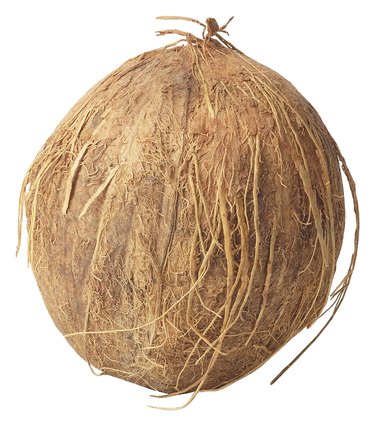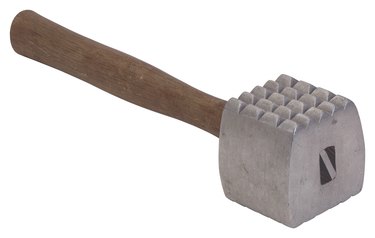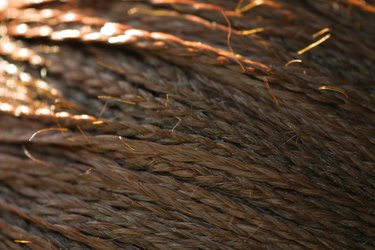Things You'll Need
Dry coconut husks
Large, flat stone
Mallet
Salt water
Large tub
Sunlight
Machete

Rope made from coconut husk (also known as sennit) is incredibly durable and can be used in the same manner you would use any other rope. Making coconut rope requires strength and patience, as it can take several weeks to complete. Be sure plan ahead if you need the rope within a certain time line, and to allow yourself time to gather and prepare the coconut husks. This project requires sunlight, so check the weather report before you begin.
Making Coconut Husk Rope
Step 1

Select several dry, mature coconuts. Cut each coconut into eight sections with the machete. Remove the inner shell and the coconut meat. Place each husk section in salt water and let them soak for two to eight weeks. You also may let the soak in the shallow part of the reef or in a fish pond if one is available. If not, you'll need a large tub. Be sure to refill the tub if the water level goes down.
Video of the Day
Step 2

Remove the husk sections from the salt water. Place one section on the large, flat rock and begin to beat with a mallet to flatten. Beat from the center to the edges. Flip and repeat on the opposite side. Beating should loosen any "pulp" or other extraneous organic matter. Beat the rest of the sections. Remove as many long fibers from the pulp as possible and rinse. Find an area that is protected from the wind and allow the fibers to dry in the sun.
Step 3

Separate the dry fibers into groups of five. Take three groups of five and braid these fibers together, holding the end with your toes, or clamping the end to a table. When they are about to run out, add a new group of five to each braid section until you've achieved the desired length. Alternatively, you may twist the fibers together by rolling them with your palm along your thigh, adding new fibers as needed.
Tip
Work with a group of people, especially when pounding the fibers, to prevent exhaustion.
Wear protective rubber gloves, like dish washing gloves, if your skin is sensitive to salt water.
Warning
Use extreme caution when handling the machete and mallet.
Video of the Day